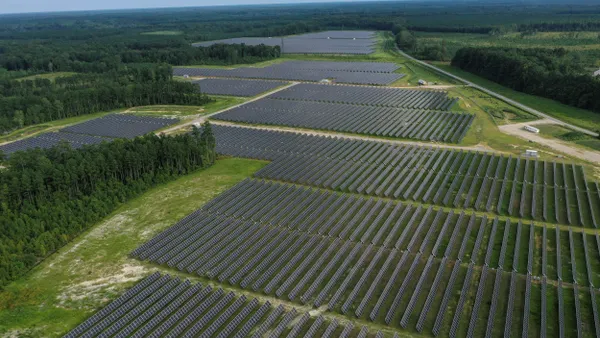Dive Brief:
- Utah's Provo Municipal Council approved new fees for solar customers of the state's largest publicly owned utility last week, attempting to ensure those customers pay their fair share of grid upkeep, the Deseret News reports.
- Only about 200 customers on Provo City Power's system currently have panels installed, and solar advocates said the decision was a "knife in the back" of renewable power.
- A monthly fee of $3/kW will be charged to net metering customers, though existing solar customers are given a credit for up to 2 kW of installed solar.
Dive Insight:
PacifiCorp subsidiary Rocky Mountain Power was under fire for solar-related issues last year in Utah, and now another utility is entering the nationwide solar debate with a decision by city leaders to levy fixed charges on distributed solar users.
Provo Power's new solar charges have outraged some customers, but officials say they are necessary because about 11% of the utility's revenues goes back into the city's general fund to pay for essential services.The council approved the new charges 4-3 last week.
The utility in an open letter to customers on its Facebook page said the "new Grid Access Fee is not intended to raise revenue but is intended to cover the fixed cost of the distribution system accessed by solar customers and not transfer these cost to customers that do not have the opportunity to install solar panels."
The city has 213 net metering customers who get paid between 9 cents/KWh and 12 cents/KWh. The utility said it can actually purchase power on the market for less, "but chooses to incentivize solar by paying the higher rate."
Matt Pacenza, executive director of HEAL Utah, a renewables advocacy group, called the decision "a blow for families who already have solar or are considering it." Instead of making it easier to install solar, he said "four council members decided to stick a knife in its back."
According to the group's web site, a study commissioned by the city "looked only at the cost of rooftop solar — and not its many economic benefits. It’s not fair to Provo families and businesses to only have looked at half the cost-benefit equation."














